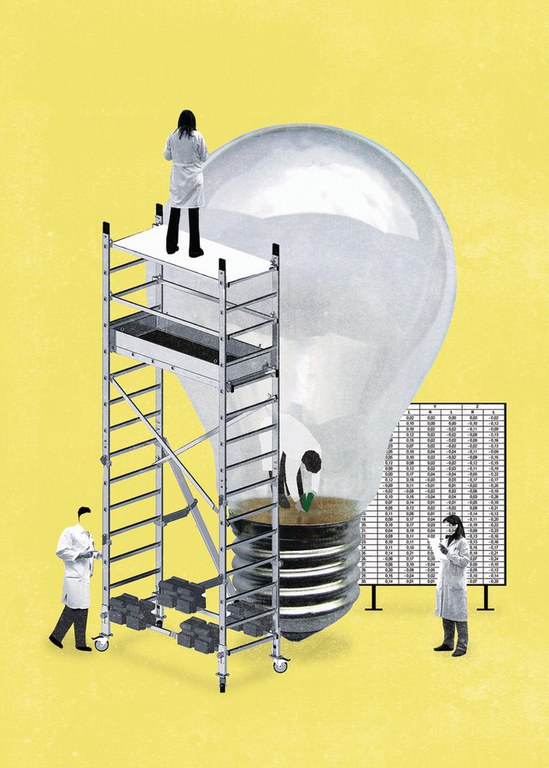Posted: March 17, 2022
Tackling our most pressing problems requires focusing on complex multisystem interactions.
The 2020 COVID Lockdown referred to as the "Great Pause," has provided an unprecedented natural experiment to study the interactions between human and natural systems. A surprising conclusion from research studies is how quickly the natural environment responded to changes in human mobility. Wildlife unheard of in urban areas were roaming the streets; skies in cities with perpetually hazardous air quality were suddenly clear; the fall in greenhouse gas emissions eclipsed declines experienced in previous economic downturns. For agriculture, COVID lockdowns led to labor shortages to harvest crops, lower demand for agricultural products as restaurants closed, and discarded crop output with implications for soil health.
This stark reminder of how strongly and widely interconnected the various human and natural systems are and how a small perturbation in one system can lead to extreme consequences in another, even continents away, has resulted in greater attention being given to research focused on "multisystem dynamics."
Since 2010, I have co-directed the Program on Coupled Human and Earth Systems (PCHES, www.pches.psu.edu), a cooperative research agreement with the U.S. Department of Energy's (DOE) Office of Science Multisector Dynamics program to develop state-of-the-art computational tools to meet DOE's stated goals to "advance the scientific understanding of the complex interactions, interdependencies, and coevolutionary pathways of human and natural systems."
Our project examines a number of complex interactions, including why people choose to move to certain locations and how these decisions may change with the increased frequency of climate-change-induced hazards such as storms, floods, water shortages, and wildfires. Human settlements not only face risks associated with these hazards, but they also contribute to the frequency and intensity of these risks. For instance, it is estimated that over 80 percent of the wildfires in the United States are caused by humans and exacerbated by dry conditions as a result of climate-change-induced drought and high temperatures. These drought conditions have been worsened by the unsustainable and inefficient use of water in many locations, the diversion of water long distances to arid regions, and historic water rights regimes favoring higher consumptive agricultural water use that are more than a century old.
Identifying solutions to these complex interconnected problems requires advanced computational, statistical, and decision support tools that capture these multisector dynamics. It also requires active stakeholder involvement in the early development of these tools to assist in the identification of key system interdependencies. Importantly, though, this type of work requires improved coordination and cooperation across disciplinary researchers and a commitment to train the next generation of multidisciplinary researchers to be able to carry out this type of work.
Bringing multidisciplinary researchers, stakeholders, and students together to tackle these types of complex interconnected problems was the impetus behind the creation of the new Institute for Sustainable Agricultural, Food, and Environmental Science (SAFES) in the College of Agricultural Sciences. The institute's 10 Critical Issue Initiatives are working groups centered around "grand challenges" that require not only a multidisciplinary research approach but also the active involvement of stakeholders and students. These initiatives, which include issues such as agricultural sustainability in urbanized landscapes, food choice and health, and transformative water quality strategies, are focused on finding mutually beneficial solutions to these and other complex problems confronting the interconnected systems of agriculture and natural resources in Pennsylvania and beyond.
-- Karen Fisher-Vanden, Professor of Environmental and Resource Economics; Director, Institute for Sustainable Agricultural, Food, and Environmental Science (SAFES); and Co-Director, Program on Coupled Human and Earth Systems (PCHES)
Features
Fostering Forests
Across the United States, forests face unprecedented threats, and scientists in Penn State's College of Agricultural Sciences are conducting novel and complex research to conserve them.
Buzzing With Purpose
Community scientists work to protect Pennsylvania's wild bees
Conservation Reimagined
Exploring new approaches to cope with a changing climate



